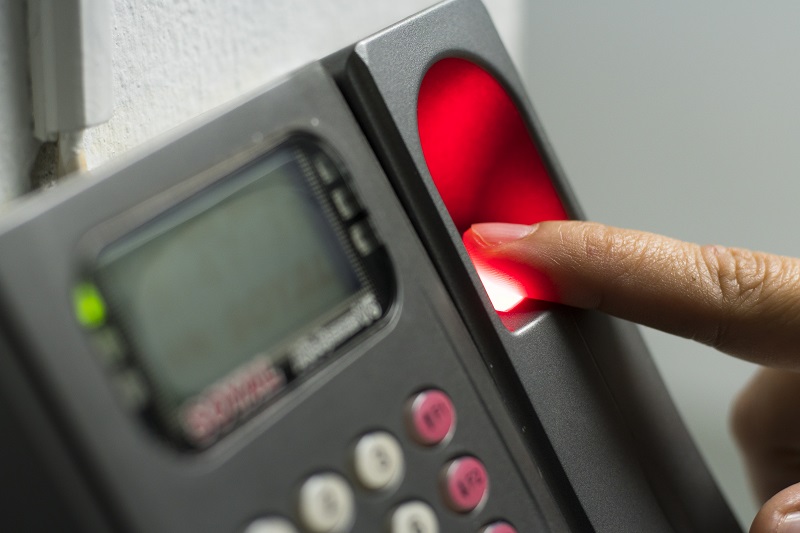As a homeowner, there are many purchases and upgrades to consider when it comes to maintaining and improving your home. One of the most essential is to get a well-stocked electronic tool kit. Buying the right tools is a smart investment that will help you save time and money. These tools help you carry out simple DIY repairs, installations, and even maintenance work around your house with little effort and know-how. Read on to discover the top electronic tools to have at home.
A Diverse Selection of Tools
Before purchasing any electronic tools for home use, you should know that there is much more to tools for electronics than just the usual pliers and screwdrivers. Here are some of the common electronic tools you should consider owning for working with electronics at home. They include hand tools, bench-mounted tools and power tools. The majority of these tools are used for:
- Cutting
- Drilling
- Tightening
- Trimming
- Inspecting
- Finishing
- Soldering
Screwdrivers
For most electronic tasks, you’ll need a basic selection of screwdrivers. Whether you’re planning to disassemble a toy or a small consumer electronic appliance at home, you will need a variety of screwdrivers—from flatheads and miniatures screwdrivers to specialty screwdrivers. Buy a combination set that comes with separate tool bits of different head sizes and make sure only to buy the highest quality from leading brands.
Pliers
The pliers you’ll find on most hardware stores are acceptable for many tasks, but are not always ideal for electronics work. There is a selection of specialty pliers you can get at a home improvement or auto parts store to pull, pinch, cut, or even bend. Some come with narrow tips and even with a 90-degree bend for better gripping. They include types like needle-nose pliers, combination pliers, locking pliers, and wire strippers that you will find in any electronics tool kit.Another type is the lineman’s pliers, which are a popular tool used by anyone who deals with household or industrial electrical wiring work. These tools can be used to cut screws, bend large-gauge wire, hammer concrete anchors or screws into a starting point, and pull cable through narrow channels.
Portable Power Drill and Drill Bits
This is a great tool for boring holes for LED indicators, screws, connectors, or switches on plastic, metal chassis and enclosure, or printed circuit board with the use of drill bits that come in different sizes from ⅛ inch to ½ inch. You can get a suitable high-speed drill from any electronics shop. Cordless drills combine power, speed, and portability that helps you to handle most drilling jobs at home.
Wire Strippers
Removing the insulation from wires is a pretty common task in most electronic-related work in homes. Investing in a simple manual wire stripper will help you do this easily without the risk of nicking the wire. There are specialized tools with adjustable design to remove insulation from any wire size.
Wire Cutters
There are specialty cutters with blades designed for electronics to cut flush against a surface or to trim component leads on a PCB (printed circuit board), while others have built-in retainers to prevent cut wires and leads from flying off.
Wire cutters come in handy when you want to cut or nip off electronic or connection wires around your home. Wire cutters for electronics should not be used on any hard items to avoid damaging the blades.
Crimping Tools
A crimping tool is essential when you’re working with connectors that come with crimped terminals. These tools come in different styles and sizes. Make sure to select the correct one for the right application.
Unlike crimping tools used in the automotive wiring, these tools are ideal for smaller terminal parts used in miniature electronic connectors. Most of these tools can also be used to strip and cut wires as well as trim small screws.
Advertisement
Soldering Tools
A 20 or 30-Watt soldering iron with different sized tips of ⅛ inch to ½ inch is an essential electronic tool for every home. There are many times electronic equipment will malfunction due to some simple soldering failure.
Fixing small appliance problems is made easy when you have the right soldering tools for home use. If you’re an electronics hobbyists at home, you can also invest in a soldering tool stand and a desoldering tool.
Clamps
When working on an electronic component, piece of wire, or two pieces of metal, you’re most likely going to need a clamp. This tool is designed to exert pressure to hold something. Clamping tools can either be screwed or locked into position. A vise can be bought for a better grip on large items.
Volt-Ohm-Milliammeter
This is an essential electronic tool that combines three functions:
- A voltmeter measures AC and DC voltages.
- An ohmmeter measures resistance.
- A milliammeter measures small amounts of DC.
This tool is crucial when carrying out simple electronic tests at home. Caution should be taken when handling any electrical test equipment.
Socket Wrench Sets
A complete socket wrench set that comes with hex drivers, nut drivers, and starters in assorted sizes comes in handy during any assembly work of an electronics project.
Utility Knife
A utility or pocket knife is also useful when you need to cut wires, PCB, or remove some copper or other material when working doing simple home repairs.
Miniature Power Saws
When dealing with home electronics, there is usually a need to cut plastic, metal tubing, small sheet metal, aluminum extrusions, or soft aluminum panels. For jobs like this, miniature power saws help you do the job easily. For cutting larger tubing, rods, or long thin items, you can get a cut-off saw with a grinder blade.
Safety Glasses
Always wear protective goggles when using home electronic tools. Small chips or pieces of metal, wire, plastic, or even wood can get into your eyes when doing repairs or maintenance work. Get high-impact safety glasses for maximum protection.
Advertisement
Other Tools
There are other numerous electronic tools that you can get for home use depending on your needs like tweezers, bench lamps, magnetic grabber tool, metal files, taps and dies, and signal generator. Having all the tools you need is great, but you also need the right place to store and use them. Essentially, that’s why you should have a workspace and a toolbox for all your electronic tools.
Maintenance Tips for Your Electronic Tools
High-quality electronic tools that you purchase can last a lifetime if well maintained. Here are some simple maintenance tips for your tools:
- Ensure that you use each tool you get for its intended purpose only.
- Keep the tools clean and sharp.
- Keep the tools well lubricated with a light film of oil to avoid rust.
- Ensure proper use of tools based on the manufacturer’s instructions.
Safety must always be your number one priority when using any electronic tools. Make sure that you also buy from the most reputable electronic tools and equipment stores, and always read reviews about different brands before spending your money.








